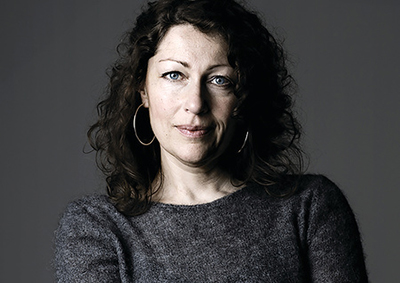Books
Feature
‘1947,’ a Year That Defined the Modern World

By Elisabeth Åsbrink. Translated from the Swedish by Fiona Graham (Other Press, 288 pp. $15.99, paperback)
In stark and understated prose, Swedish writer Elisabeth Asbrink juxtaposes seemingly random events of 1947, organized by month and location, to construct a close-up picture of a year that redefined the modern world.
“Upon the quagmire of oblivion,” she writes, “the world rebuilds itself.” On February 17, 1947, Britain relinquishes responsibility for Palestine. Two days later, Britain announces it will grant India independence and, a day later, Britain says it will no longer support Greece and Turkey, American allies. The British empire collapses.
Individuals and events color Asbrink’s snapshots in 1947, which is part memoir and part history. Here is Henry Ford, the automobile mogul and avatar of anti-Semitism, who dies unexpectedly in April; George Orwell, from a sick bed, who completes 1984, adding Big Brother to our lexicon. Asbrink also includes when the S.S President Warfield is renamed the S.S. Exodus and begins its fateful journey after Britain suggests returning Holocaust survivors to Germany. Nazism takes up new guises in Scandinavia and South America.

To be sure, there are positive accomplishments. An American Navy admiral, Grace Hopper, invents a single standardized computer language, Cobol. The United Nations is founded; and the Marshall Plan for the rebuilding of Europe takes shape.
In a personal departure from the month-to-month format, Asbrink recounts family history. A 10-year-old Jewish boy, Joszef, who survived the Holocaust, is given the option of returning to his native Hungary or migrating with other young Jews to Palestine. He decides to return to Budapest with his mother, Lilly, his father having died among the 424,000 Hungarian victims of the Nazis.
Joszef is Asbrink’s father. Lilly, her grandmother, saved her father’s life three times. In 1974, Joszef writes his daughter a 19-page, typewritten letter expressing his love. His last thought: “Never pity yourself.” This unorthodox look at history forces us to put our own thoughts in perspective and re-position our view of world events.
Stewart Kampel was a long-time editor at The New York Times.










 Facebook
Facebook Instagram
Instagram Twitter
Twitter
Tilly says
And in 1947, most of the post Holocaust babies were born to survivors. We are mostly only children born in Europe, many in DP camps, some in countries which turned Communist days after we were born, thus trapping our parents and us behind the Iron Curtain for years and years.
We are in our early 70’s now (2020) most affected by the Holocaust forever, health wise suffering many ills, and having our parents died in their 50’s, 60’s.